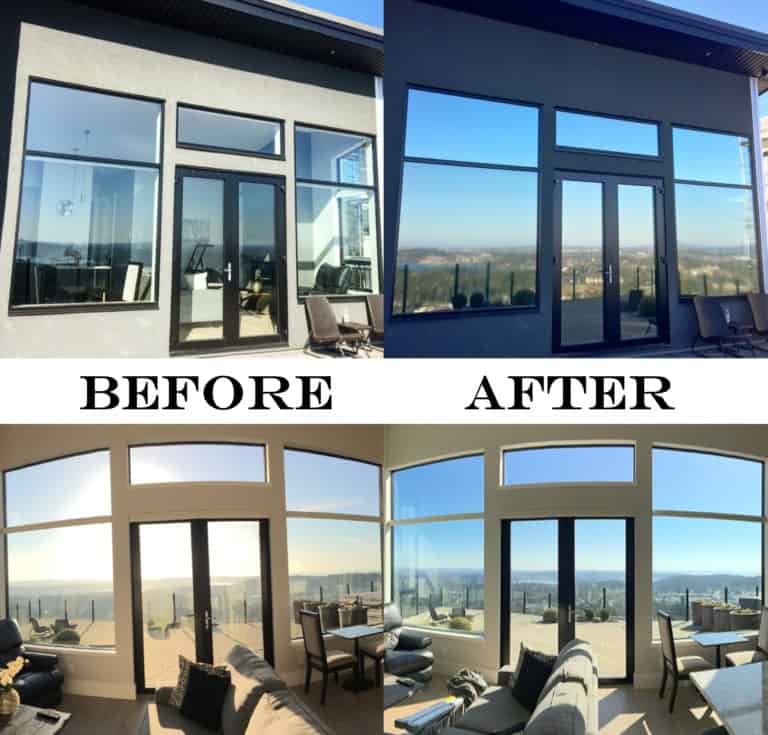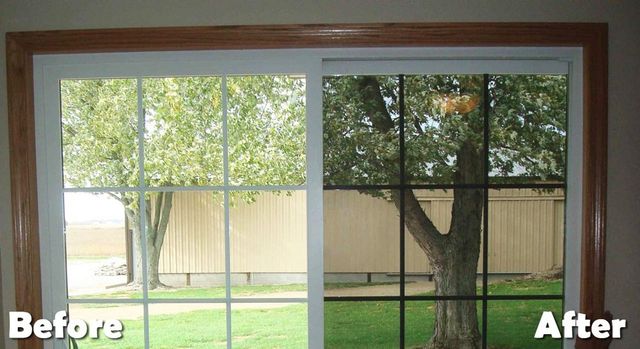Just How Residential Window Tinting Improves Your Home's Energy Efficiency
Residential window tinting provides an engaging solution for house owners looking for to enhance energy performance within their living spaces. By applying specialized films to home windows, it properly lowers warm transfer, therefore maintaining indoor temperatures and reducing the demand for excessive heating or cooling.
Comprehending Home Window Tinting
Understanding home window tinting is necessary for homeowners seeking to enhance both convenience and energy efficiency in their space. Residential Window Tint. Window tinting involves the application of a thin film to the interior or exterior surface of glass windows. This film can considerably regulate the quantity of sunlight and warm that goes into a home, therefore influencing indoor climate conditions
There are numerous kinds of window tinting movies offered, each with distinctive homes. The effectiveness of home window tinting is typically measured by its Visible Light Transmission (VLT) percent, which indicates just how much light can pass with the movie.
Benefits of Power Efficiency
Window tinting not just improves aesthetic appeals but additionally plays a significant function in enhancing power effectiveness within residential areas. By decreasing warmth transfer with home windows, tinted movies develop a much more secure indoor environment, which can lead to significant decreases in energy usage for cooling and heating. This power effectiveness translates into lower energy bills, giving house owners with substantial long-lasting financial savings.

In addition, home window tinting improves the comfort of living spaces. By lessening glow and blocking hazardous UV rays, colored windows develop an even more enjoyable environment, which can bring about enhanced well-being for residents. The defense versus UV rays also aids protect furniture and floor covering from fading, adding to the durability of house products.
How Tinting Functions
Tinting films run with a mix of sophisticated materials and modern technologies made to manage the quantity of solar power entering a home. Mostly composed of polyester, these movies commonly incorporate metal or ceramic bits that reflect and soak up heat. This double capability enables them to substantially reduce the infiltration of ultraviolet (UV) rays and infrared radiation while allowing visible light to travel through.
The efficiency of home window tinting is gauged by its solar warmth gain coefficient (SHGC), which shows just how much solar energy is transferred via the window. browse this site Lower SHGC worths are more suitable as they represent greater warm denial. Additionally, window tints can include a variety of shades, enabling homeowners to tailor their visual preferences while boosting energy effectiveness.
In addition, these films act as an obstacle, preventing heat loss during chillier months by mirroring indoor heat back right into the space. This thermal insulation impact complements the air conditioning advantages obtained throughout warmer months, contributing to a balanced interior environment year-round. By managing solar power successfully, domestic home window tinting not only boosts comfort but also plays a vital function in minimizing power intake and lowering utility bills.
Choosing the Right Tint

There are various types of home window films offered, consisting of colored, metalized, and ceramic. Ceramic films offer exceptional heat control without jeopardizing presence and are very durable, making them a popular option.
Noticeable light transmission (VLT) is another vital variable, as it shows the quantity of all-natural light that can go through the tinted glass. Homeowners ought to select a tint with a VLT that matches their illumination preferences while still supplying adequate glare reduction.
Additionally, evaluating the solar heat gain coefficient (SHGC) can assist figure out exactly how well a tint can block heat from sunlight. A reduced SHGC suggests much better warm control, eventually improving energy efficiency.
Setup and Maintenance Tips
Appropriate installation and maintenance are essential parts in maximizing the benefits of property window tinting. Professionals additionally make use of specialized techniques and devices, which can enhance the longevity and performance of redirected here the tint.
Adhering to setup, upkeep is vital to prolong the life of the window movie. It is recommended to wait at the very least 30 days prior to cleaning the colored home windows to permit the sticky to treat totally.
Additionally, routine evaluations are valuable. Check for any type of peeling or bubbling, which might suggest incorrect installation or put on in time - Residential Window Tint. Attending to these issues without delay can prevent further damage and keep energy performance. By sticking to these installment and upkeep pointers, property owners can ensure image source their window tinting proceeds to provide substantial power savings and convenience for years to come.
Verdict
In verdict, property home window tinting serves as a reliable service for enhancing power efficiency within homes. By decreasing heat transfer and obstructing hazardous UV rays, home window films contribute to lower energy intake and improved indoor convenience.
Window tinting entails the application of a slim movie to the inside or outside surface area of glass windows. By lowering warm transfer with windows, tinted films produce an extra secure indoor climate, which can lead to considerable decreases in energy consumption for home heating and air conditioning.The performance of window tinting is gauged by its solar warm gain coefficient (SHGC), which suggests how much solar power is transmitted via the home window. By handling solar power effectively, domestic home window tinting not just enhances convenience however additionally plays an important duty in reducing energy consumption and decreasing utility bills.
By decreasing heat transfer and blocking unsafe UV rays, window films contribute to decrease power consumption and boosted indoor convenience.
Comments on “Residential Window Tint: Maintain Your Home Comfortable Year-Round”